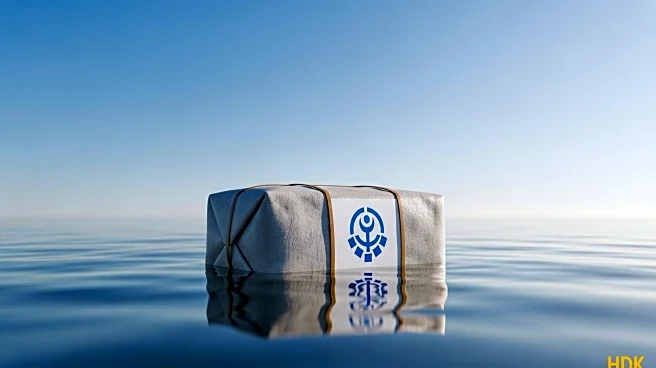What is the story about?
What's Happening?
The Israeli Foreign Ministry has stated that the Global Sumud Flotilla, intercepted en route to Gaza, did not carry humanitarian supplies. Israeli Police spokesperson Dean Elsdunne suggested the flotilla was more about generating headlines and social media attention than delivering aid. The flotilla, which was stopped by Israeli forces, has been a focal point of international debate, with activists claiming it aimed to deliver essential supplies to Gaza. The flotilla's interception has led to protests and condemnation from various countries, highlighting differing narratives about the mission's intent.
Why It's Important?
The claim that the flotilla lacked humanitarian supplies challenges the narrative presented by activists and raises questions about the transparency and intentions of such missions. This development may affect international perceptions of the Israeli blockade on Gaza and influence diplomatic relations. The controversy underscores the complexities of humanitarian efforts in conflict zones and the role of media in shaping public opinion. It also highlights the ongoing struggle to address humanitarian needs in Gaza amidst political and military tensions.
What's Next?
The Israeli government may face increased scrutiny and diplomatic pressure from countries whose citizens were involved in the flotilla. Activists and international organizations may push for further investigations into the flotilla's contents and the circumstances of its interception. The incident could lead to renewed discussions about the legality and ethics of the Gaza blockade and the broader Israeli-Palestinian conflict. Future humanitarian missions to Gaza may be influenced by the outcomes of this controversy.
Beyond the Headlines
The flotilla's interception raises broader questions about the effectiveness and ethics of humanitarian interventions in conflict zones. It highlights the challenges faced by activists and organizations in delivering aid amidst political and military obstacles. The incident may contribute to ongoing debates about international law, human rights, and the role of media in conflict resolution.














